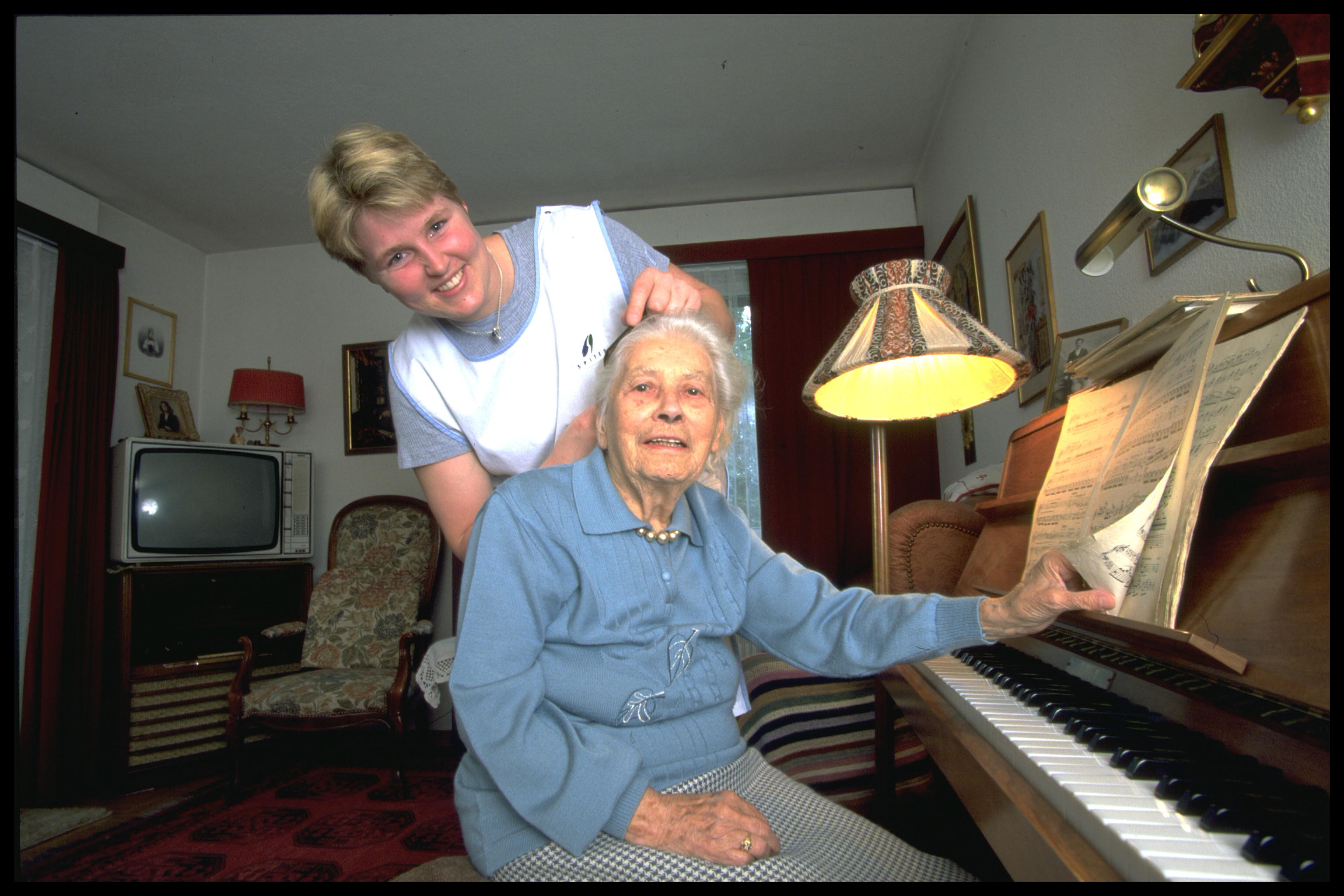
Home-care services increase, nursing home stays stagnate

Better at home than in a home: almost 350,000 people made use of assistance and home-care services (Spitex) last year, 10,000 more than in 2016. In contrast, the number of residents of old-age and nursing homes remained constant at 149,000, 15% of them for a short stay.
SpitexExternal link, a Swiss non-profit organisation that provides in-home nursing services like changing bandages and administering medicine, chalked up nearly 16 million hours of home care and more than six million hours of assistance, according to figuresExternal link published on Thursday by the Federal Statistical Office.
The number of private Spitex providers grew notably. While Spitex provided a total of 7% more care and support hours last year than in 2016, private-sector care companies increased their work hours by 43%.
On average, 22.5% of residents who lived at home were over 80. Of these, there were two to three times as many women as men.
Over the same period, 95,883 long-term places were available in 1,561 retirement and nursing homes, 0.6% more than in the previous year. Staff increased by 2%. But in most cantons, the proportion of over 65-year-olds who lived in such homes declined.
Health costs
In 2017, the costs of a long-term place in a home averaged CHF9,122 ($9,075) per client per month, CHF200 more than in 2016. This amounted to a total of CHF10 billion for the year; 43% of which was covered by compulsory health insurance.
Of the almost CHF2.5 billion that Spitex care cost in total, insurers covered over 39%. Just under a fifth was borne by the clients themselves and 42% was paid for by the public sector. According to the statistical office, Spitex costs averaged just under CHF600 per client per month.
Despite the continuous expansion of private sector support since 2011, Spitex’s market share remains 80%.

More
East European carers look after aged Swiss

In compliance with the JTI standards
More: SWI swissinfo.ch certified by the Journalism Trust Initiative































You can find an overview of ongoing debates with our journalists here . Please join us!
If you want to start a conversation about a topic raised in this article or want to report factual errors, email us at english@swissinfo.ch.